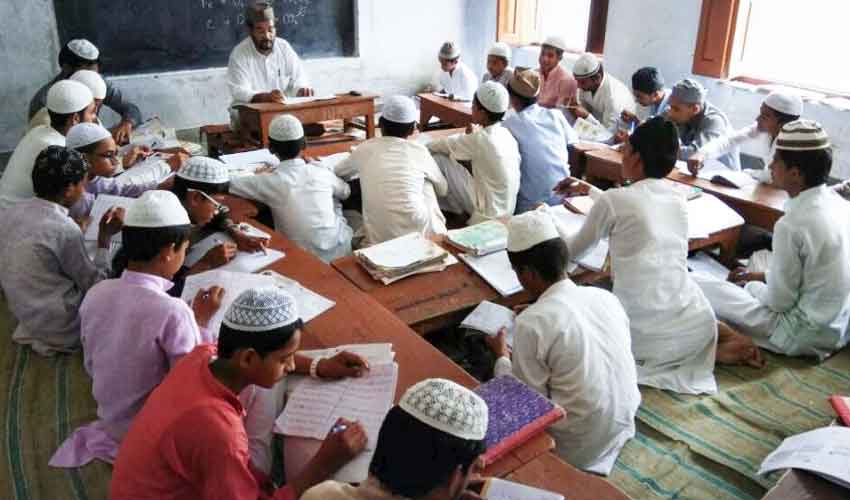India's most populous state, Uttar Pradesh, has stopped paying some 21,000 teachers of subjects, including mathematics and science, in madressahs. The move has raised concerns about the education of Muslim children, as the teachers are set to lose their jobs, and potential discrimination against the minority community.
The teachers worked at madressahs in Uttar Pradesh, which is ruled by Prime Minister Narendra Modi's Hindu nationalist Bharatiya Janata Party (BJP). The decision comes ahead of Modi seeking his third straight term in a general election due by May.
"Over 21,000 teachers are set to lose their jobs," Iftikhar Ahmed Javed, chief of Uttar Pradesh's madressah education board, told Reuters. "Muslim students and teachers will go back by 30 years."
Rights groups such as Human Rights Watch have accused the BJP of threatening and harassing Muslim and other religious minorities with impunity under Modi's rule. The BJP denies these accusations. Muslims comprise about 14% of India's 1.42 billion population, and nearly a fifth of that of Uttar Pradesh.
According to a document seen by Reuters, the federal government stopped funding the program that provided financial support to madressahs, called the Scheme For Providing Quality Education in madressahs, in March 2022.
The document, from the Ministry of Minority Affairs, shows that Modi's government did not approve any new proposals from states under the program between the 2017-18 and 2020-21 fiscal years, before closing it altogether.
Modi's government had previously raised funding for the program to a record of about $36 million in the fiscal year to March 2016. His office did not respond to a request for comment.
India's minority affairs ministry, which ran the program until it was closed, also did not respond to requests for comment.
The document did not cite a reason for closing the program, but a government official said it could be because a 2009 law ensuring free compulsory education for children covers regular government schools.
Government data shows that more than 70,000 madressahs were covered in the first six years of the program, which was started in 2009-10 by the previous government run by the Congress party.
Shahid Akhter, a member of a government panel on minority educational institutions, said that the program benefited Muslim children and should be revived.
"Even the prime minister wants children to have both Islamic and modern education," he told Reuters. "I am already talking to officials to see that the scheme is retained."
The federal government only told states about ending the program in October last year, according to a letter Uttar Pradesh madrasa official Iftikhar Ahmed Javed sent to Modi on Wednesday.
Javed said that his state had not paid its share to the teachers since April and decided to stop paying altogether this month, while the federal portion had not been paid for six years.
"We were doing our work smoothly in the hope your kind-heartedness would resolve the issue," added the letter from Javed, who is also the national secretary of the BJP Minority Front.
A senior Uttar Pradesh information official had no immediate comment.
The state used to pay up to 3,000 rupees ($36) a month from its own budget to the teachers of subjects including science, maths, social studies, Hindi and English, on top of up to 12,000 rupees from the federal government.
"We do not have any other job and I am too old to get another one," said Samiullah Khan, a madrasa teacher from Bahraich district for the past 14 years.
The northeastern state of Assam is also converting hundreds of madressahs into conventional schools, despite protests from the opposition and Muslim groups. Its chief minister has called for all states to stop funding madressahs.
Many madressahs in India are funded by donations from members of the Muslim community, while others rely on government aid.
The decision to stop paying teachers at madressahs has been met with criticism from rights groups and Muslim leaders. They argue that it will deprive Muslim children of quality education and further marginalize the community.
The BJP has defended the decision, saying that it is necessary to ensure that all children receive the same quality of education. However, critics argue that the move is part of a broader agenda of Hindu nationalism that seeks to marginalize Muslims and other minorities in India.
The decision to stop funding madressahs is likely to have a significant impact on the education of Muslim children in India. It is also likely to further strain relations between the Hindu majority and the Muslim minority.



























